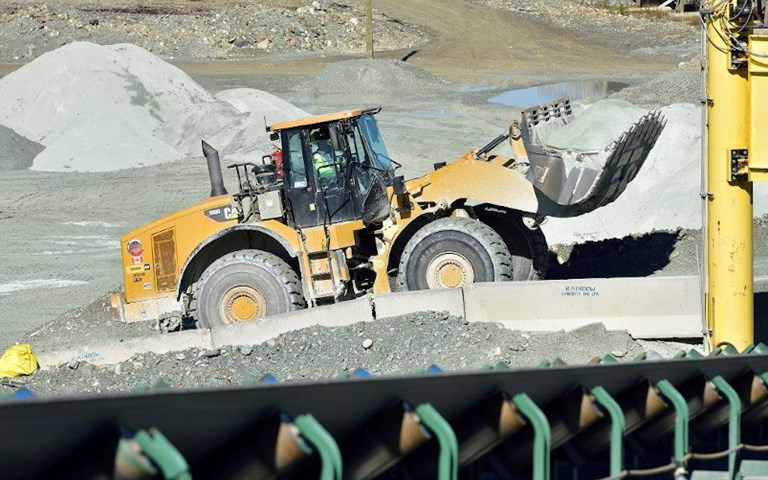Mine supply companies in Northern Ontario are forced to wait and see what the impacts of COVID-19 will be. Courtesy of McEwen Mining.
As mining companies continue to make contingency plans for the possible outcomes of the COVID-19 pandemic, mine supply companies are finding themselves with less ability to maneuver in this time of crisis and little ability to predict the future of their businesses.
For Paul Bradette, executive director of MineConnect, Ontario’s mining supply and services association, the impact that COVID-19 has had on the mining supply sector in the province has been wildly varied.
“The difficult part for us is we have roughly 170 members, but of all varying sizes,” Bradette told CIM Magazine. “From blue chip companies to some operations that have two or three employees. We’ve seen some of our operations go through a 60 per cent layoff. We’ve seen some that are just currently working on back orders and have laid nobody off.”
According to Bradette, the initiatives that the Canadian government has already put in place have been a good start. The federal wage subsidy program which could potentially cover up to 75 per cent of employees’ salaries and access to interest-free loans have been priorities for mine suppliers in the province. Some of the members of MineConnect have been looking towards subsidies for research and development in the event that current orders dry up.
“At present, it’s not a perfect situation though it certainly could be worse,” Bradette said.
Comparatively, suppliers in Ontario have had it fairly easy. Mines in Quebec, for example, have been limited to operating with only critical employees during the non-essential business shutdown the province invoked on Mar. 23. (On April 13, however, it was announced that mines would be allowed to reopen on April 15.) During the same period, Ontario mines have been able to continue operations, albeit at a reduced pace. That has been essential in keeping some of MineConnect’s members functioning during the pandemic.
Related: New federal subsidy program will cover up to 75 per cent of employees’ wages for businesses of all sizes
“We’ve been pretty fortunate so far in Ontario,” Bradette said. “I think the critical piece is to keep the mines working safely so that they continue to require good and services, and they can continue to pay for those goods so our members can keep moving. I think that’s the key piece, continuing to keep the mines working is going to be critical moving forward.”
Keeping the mines open is easier said than done, however. Governments and companies are doing the best they can to try and mitigate the spread of the virus through disinfecting, social distancing and self-isolation when necessary. However, if those strategies fail to prevent new cases the impacts could be unpredictable for miners and mine suppliers.
“I haven’t been in contact with all [our] members but the ones I do talk to are trying to abide by those guidelines and ensure a safe working environment,” Bradette said. “At the end of the day, when, God forbid, one of their employees gets infected then what’s the move then? That is the game changer.”
“I think the government is doing the right things,” he continued. “They’re trying to implement everything in their power to try and mitigate this, but how do you plan for something like this? It’s impossible. It’s really kind of scary times here.”
As an organization, MineConnect is “trying to support the companies by getting accurate information from them so we can convey that information to the government so it can make the right decisions,” Bradette said. While nobody knows when this COVID-19 crisis will break, having plans to bring businesses back is critical.
“That’s the type of strategizing that we’re trying to do to ensure that when this all comes out we break this cycle: what are [our members] going to need to help ramp back up and to become active and whole again?”



